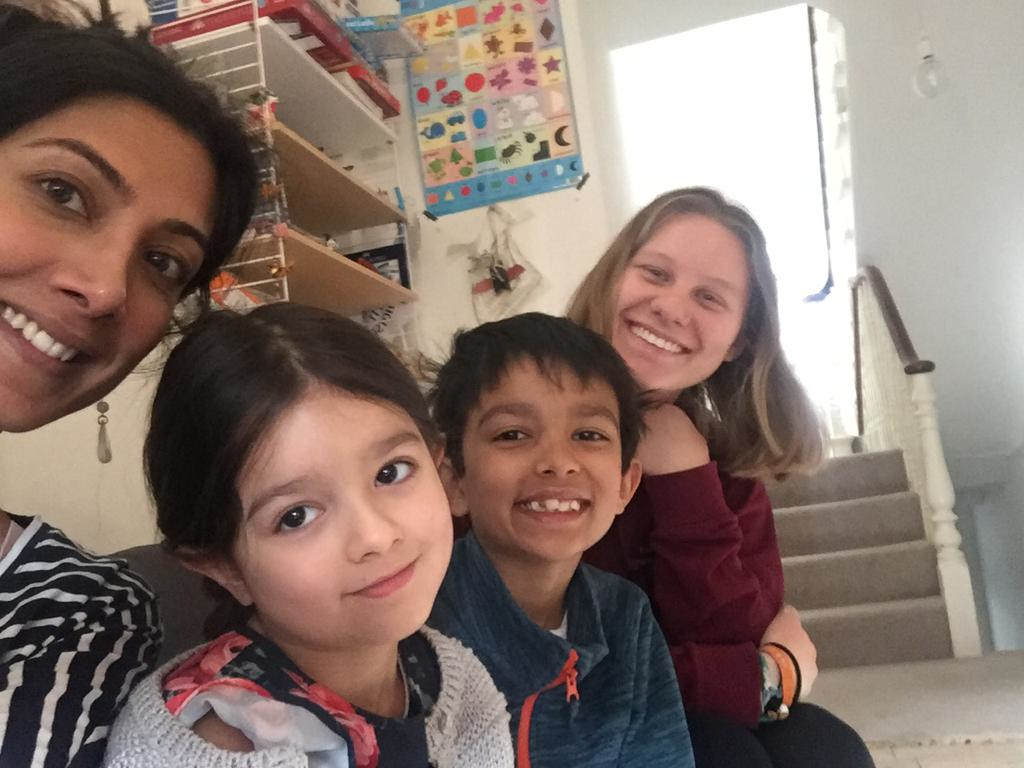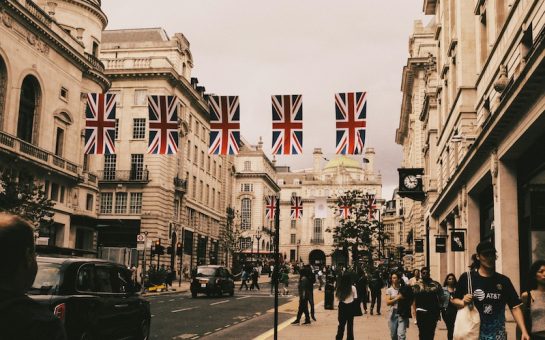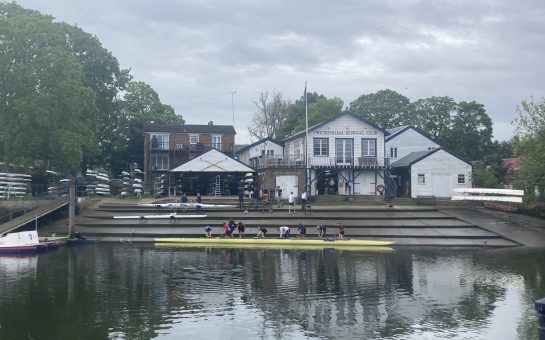Anna Cooban
May 19 2020, 21.33
Follow @SW_Londoner
Richmond au pair Chiara was in her new job less than three weeks before a global pandemic put her on a plane back home to Switzerland.
She had come to Richmond in early March to live with a British family and care for their nine-year-old daughter.
“This was not the au pair experience I had imagined,” she admitted on March 31.
And like many other international workers, au pairs have been leaving their adopted countries in droves to join their families, as the coronavirus rolls through the world’s nations.
Au pairs provide part-time childcare, taking up room and board with a host family in a foreign country for between three and 12 months. The scheme started in 1969 as a reciprocal agreement between European countries and is designed to facilitate a cultural exchange, with au pairs typically attending language school outside of their domestic duties.
The estimated 60,000 au pairs in Britain are still widely viewed as a mainstay of the idle, chattering classes, a reputation that has been hard to shake despite a fast-evolving childcare landscape.
Yet the flexible, live-in help they provide has become a lifeline for many of Britain’s ‘key worker’ families on the frontline of the coronavirus response, unable to pay the exorbitant costs of nursery and professional nannies.
A severe shortage of au pairs is causing doctors, school teachers and policepersons – occupations the government has designated as central to propping up society as it fights the disease – to consider abandoning work altogether.
Khaleeda Siraj is an A&E doctor and faces abandoning her 17-year career if she is unable to find a replacement au pair soon.
“In my world, I can’t get a job where I can drop the kids off at 8am and pick them up at 3pm.
“Even when I’m doing sociable hours, if the patient is sicker than I originally thought, I need to stay.
“They are going to lose people who are willing to do anti-social hours.”
A Devonshire-based consultant surgeon, and single dad-of-three, anticipates working 100-hour weeks in the immediate future.
“When our current au pair leaves, I will be left without childcare and will probably have to stop working. There’s no way I can afford a live-in nanny,” he said.
“What really infuriates me about the perception of au pairs is that it is seen as an option for the upper middle classes who want to neglect their children.
“I simply cannot look after my children without responsible adult in the house full time.”

Jamie Shackell, chair of the British Au Pair Agencies Association (BAPAA), agrees: “We have thousands of families that are key workers and shift workers who rely on au pairs because of the flexibility it affords them.
“If a family only requires wraparound care, such as before and school, a nanny would still need to be paid for the full day.”
“Many families will be financially crippled without their au pairs.”
The problems ailing the industry go beyond the acute impact of coronavirus. Chronic uncertainty surrounding the future immigration status of au pairs – most of whom come from the European Union (EU) – once Britain’s transition period ends in January 2021, have deterred many from coming.
Ms. Shackell estimates the number of au pairs from the EU has declined by as much as 75 per cent since the 2016 referendum.
Since then, BAPAA has urged the Home Office to clarify au pairs’ position in the post-Brexit immigration regime.
“Au Pairs have been able to come to the UK for just over 50 years,” she said.
“Language schools and colleges will also be impacted by the loss of au pairs who attend English courses during their stay.”
In the past, au pairs from all countries required a visa to work in Britain. In 2008, the au pair visa was scrapped and replaced by a tiered immigration system. Au pairs from Australia, New Zealand, Canada and Japan now enter the UK on a tier-5 Youth Mobility Scheme visa (YMS) while freedom of movement meant no specific visa arrangements were made for EU nationals.
According to Ms. Shackell, the Migration Advisory Committee (MAC), an independent body advising the Home Office on immigration policy, admitted to BAPAA in September 2018 that the au pair programme had been forgotten.
Communications between MAC, the Home Office and BAPAA throughout 2019 provided little further clarity, until March when the Home Office confirmed to BAPAA that the government’s new points-based, employer-led immigration system did not recognise au pairs.
Legally, au pairs are not classed as employees. Prohibited from working more than 30 hours a week, they are paid ‘pocket money’ in the region of £90 a week to cover personal expenses. It is unclear whether host families could act as their employer sponsor.
The YMS is a less than ideal route for European au pairs into Britain. YMS applicants must prove they have at least £1,890 in personal savings – a tall order for the young cadre of applicants, the majority in their late teens and early twenties.
Still, BAPAA are pushing for the introduction of a special au pair sub-category to the tier-5 visa that addresses these limitations.
Rebecca Haworth-Wood runs agency A2Z Au Pairs and formerly chaired BAPAA. She has seen a minimum 50% decline in applications since 2016.
“If we lose the au pair programme, there are so many families who will struggle to find the right sort of childcare,” she said.
“Most of the au pairs who are still here finish in late summer and no one is coming to replace them in the current climate. I will have 100% of my families looking for an au pair after that.”
For many families, life without an au pair means hard career choices.
One police detective for the Metropolitan police, and mother-of-two, re-mortgaged her house to build a living space for an au pair, and now faces leaving her 16-year career if she cannot find one.
“People think posh people have au pairs but they don’t. We’re just a normal key worker family and they massively help us. It would be completely unaffordable to put both of my kids through nursery,” she said.
“It’s still cheaper to pay the re-mortgage payments, and the au pairs pocket money, car, petrol and insurance, than put my children through nursery.”
Au pairs held a precarious place in Britain before coronavirus. Now, as the disease shutters nations and suspends life, the families left without them, too, face an uncertain future.
Featured image shows the BAPAA au pair welcome event in September 2019.




